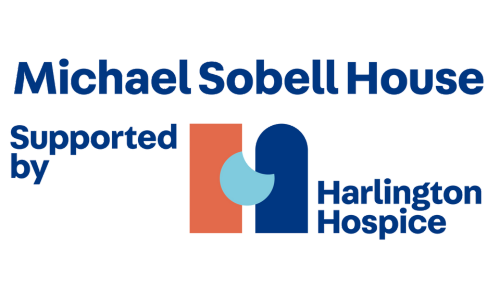Bhavini Pandya has been an Occupational Therapy and Physiotherapy Assistant at Michael Sobell House in Northwood for almost eight years. Here, she talks about her work and how their Rehab Team supports local people who are facing advancing illness to continue living life in a way that is meaningful to them.
I’m an Occupational Therapy and Physiotherapy Assistant working as part of our Rehab Team at Michael Sobell House. We take a very holistic approach to care and support, incorporating so many different areas. It’s all about empowering the patient and keeping them as independent as possible and what we do is very much patient-focused and an individualised form of care. We work with our patients rather than doing things for them.
My role is quite a varied one although it centres around the mobilisation of patients: keeping them safe, looking at exercises to maintain their strength levels, and, if things change, providing alternative ways of being mobile. I also support people with pain relief, using TENS machines which disrupt the pain pathways and replace the feeling of pain with a little sensation caused by an electric current. Also, our team helps with falls management, using a variety of techniques to minimise the risk of falls. It’s all about making sure people can be mobile safely and providing whatever support is required to achieve that.
From an occupational therapy point of view, we are focused on enabling people to continue doing what they could do whilst at home. This includes looking at their activities of daily living — how they wash, how they dress, how they eat — and if those have changed due to illness or deterioration, we look for alternative ways that they can do them. This can involve looking at fatigue management, sleep hygiene, relaxation and anxiety management, and providing equipment on the ward. For example, if someone is struggling to eat, we can give them alternative cutlery, bowls, things like that. We are always looking for things that we can improve for them and to make things easier for them where they struggle. This extends into the community when they’re discharged from our inpatient unit in Northwood. For example, when they go home or into a nursing home, we will try to provide that equipment from social services for them.
We also do a lot of psychological work and talking therapies, looking at where people’s boundaries are and trying to resolve those by talking about them so they can cope with things better. We help people to build their confidence back up when they start to deteriorate and struggle doing things that they loved doing previously. We work with them to discover alternative means for them to continue doing what they love.
There have been many memorable moments since I started working in this field. For example, I went to see a lady for about eight weeks who was really struggling. She just wanted some company at home and someone to come and look at physio, exercise, shortness of breath, and fatigue management. She didn’t want to come into a hospice or into hospital. However, as I spoke to her and told her of the work that I do and what hospice care was all about, she started to understand that the inpatient unit is not just somewhere people go to die. It is also a place where you can go for respite and to learn new skills and then you can go back home. She became a bit more open to coming into Michael Sobell House after that. When she began to deteriorate and became poorly, eventually, she chose to stay with us at the House. Making this decision to leave her home and enter into a new and unfamiliar place was a big deal for her, but she felt able to do so because of the relationship we had developed over the 8 weeks of outpatient care.
Physiotherapy and occupational therapy enhance people’s lives. They allow you to maintain independence, overcome boundaries and barriers, and be able to live in an environment that you want to be in. I’m very lucky to be able to do it and I love my work.









